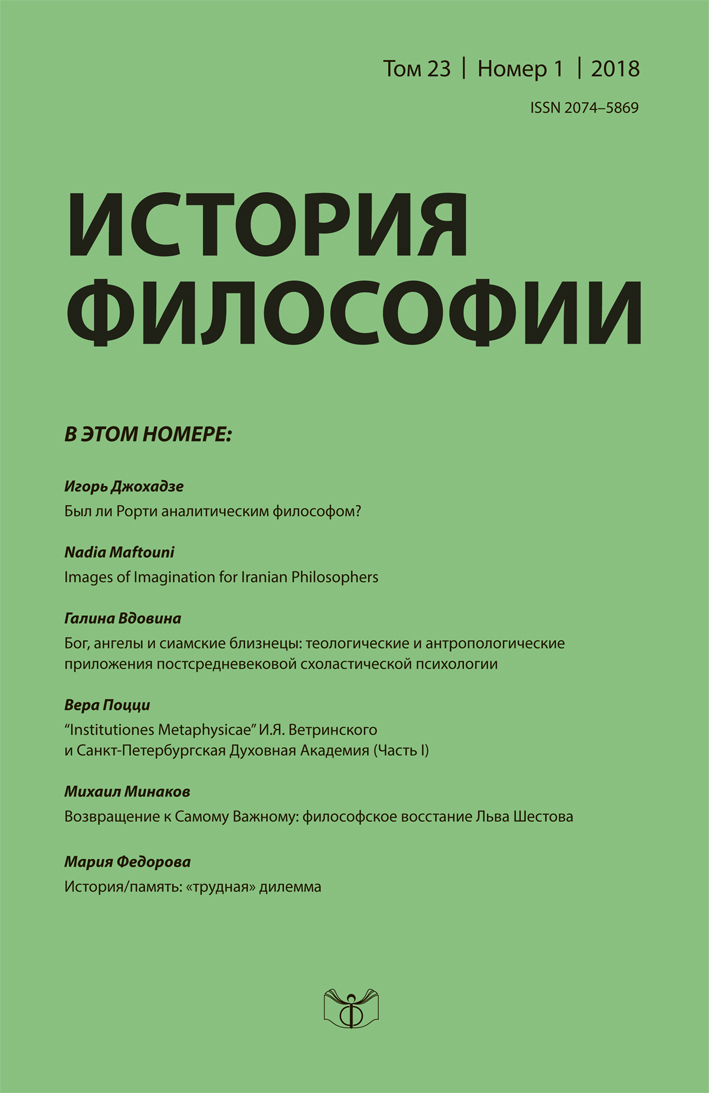Return to the Most Important: Philosophical Revolt of Leo Shestov
Keywords:
Leo Shestov, Martin Heidegger, ontology, fundamentalism, modernism, traditionalismAbstract
The author analyses the philosophy of Leo Shestov in the context of struggle between modernists
and traditionalists in Russia and Europe of the first half of the XX century. Shestov’s critique of
philosophical solidity connects to his quest for origins of Being. A revolt against the fundamental philosophical thinking stems from his search for direct relation to Being. Towards this end Shestov
revises philosophical canon and defines thinkers as unacceptable (Spinoza, Kant, Hegel) and
acceptable, the philosophical Jerusalem (Abraham, Plotinus, Kierkegaard, Nietzsche). He interprets
the “flight to the primordial” as a way of thought transcending the rational-causal paradigm and
moving towards the true-being dimension. Hence, Shestov’s position is regarded paradoxical: on
one hand, he defends fideism and irrationalism, while on the other hand he rejects metaphysics of the
next-world eternity. The author notes the convergence of Shestov’s position with that of Heidegger
on issues, concerning the unhiddenness of truth, the void as possibility of realization of Being, and
of God as a source of human being.

